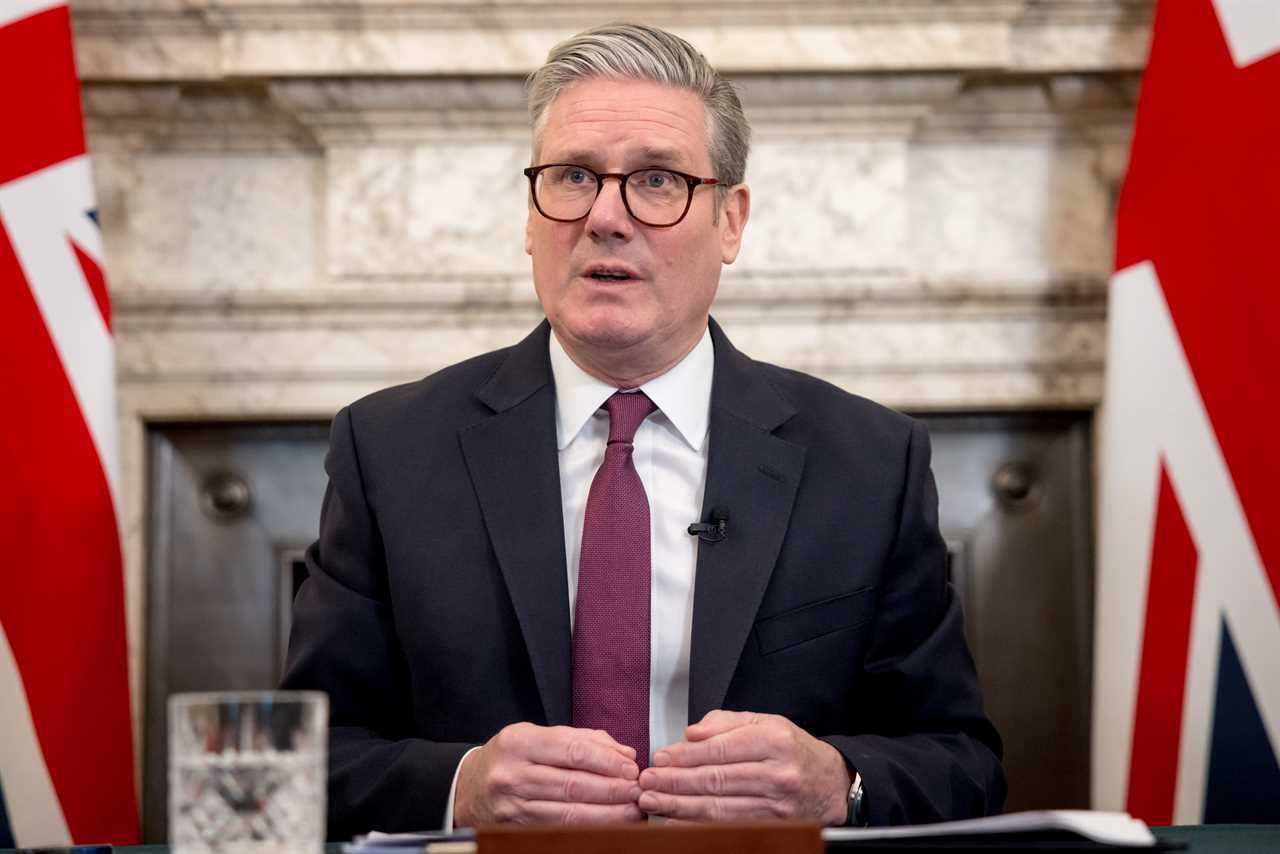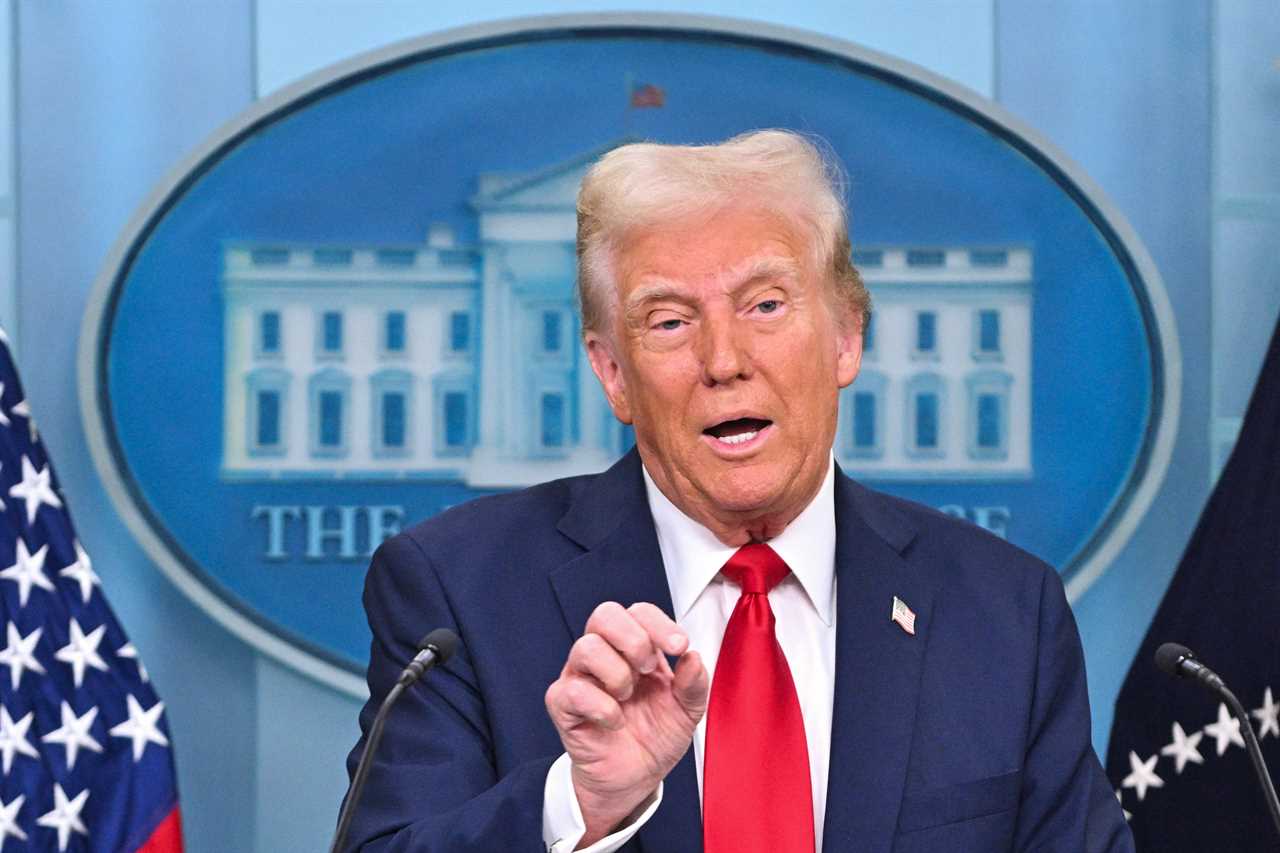
Immediate Tariffs Expected on UK Imports
UK officials are on high alert as President Donald Trump is set to announce new tariffs today, potentially imposing a 20% levy on all imported goods from Britain. The move comes after diplomatic efforts to ease tensions failed, leaving the UK government preparing for significant economic repercussions.
Government Officials Respond with Strategic Caution
Prime Minister Sir Keir Starmer has assured the public that the government will handle the situation with a measured approach. “We will respond thoughtfully and strategically to protect our economy,” he stated, emphasizing the need to avoid impulsive decisions that could further destabilize the market.
Deputy PM Rejects Retaliatory Measures
Deputy Prime Minister Angela Rayner dismissed suggestions of retaliating against the tariffs by cancelling President Trump’s upcoming state visit. “It’s not about who visits the King or not. It’s about putting the British interest first,” Rayner explained, highlighting the focus on safeguarding national economic interests over diplomatic gestures.
Call for Robust Trade Negotiations
Conservative leader Kemi Badenoch urged, “A comprehensive trade deal is the best way to address these challenges.” She emphasized the importance of sustained diplomatic efforts to negotiate terms that could prevent the imposition of tariffs, warning that retaliatory actions would only lead to broader economic hardship.

Economic Experts Warn of Severe Consequences
Analysts from the Institute for Public Policy Research (IPPR) have raised alarms about the potential fallout. They predict that sustained tariffs could endanger up to 25,000 UK jobs in the automotive sector alone, severely impacting the country’s car manufacturing industry and overall economic stability.
Potential Focus on Technology in Negotiations
While a swift agreement appears unlikely, UK negotiators are reportedly targeting the digital services tax in their discussions with the US. Modifications to the current 2% levy on major US tech companies could be a bargaining chip to secure exemptions from the proposed tariffs, offering a possible pathway to mitigate some of the economic damage.
White House Stance Remains Firm
A White House spokesperson reaffirmed the administration’s prioritization of American interests, stating, “The president’s focus remains on strengthening the US economy.” Despite indications of openness to dialogue, the administration emphasizes that US policies will primarily benefit the United States.
Chancellor Highlights Financial Vulnerabilities
Chancellor Rachel Reeves has voiced concerns that the government’s financial reserves, revealed in the recent Spring Statement, could be significantly depleted if tariffs remain in place. This financial cushion, valued at £10 billion, was intended to safeguard the economy, but prolonged tariffs could erode this buffer, leaving the UK more vulnerable to economic shocks.

Focus on Fair Business Practices
Treasury Minister James Murray emphasized that any adjustments to the digital services tax would ensure that businesses contribute appropriately. “The principle behind our decisions is that businesses should pay their fair share,” Murray stated, underlining the government’s commitment to maintaining equitable economic policies while navigating the tariff challenges.
Looking Ahead: Strategic Moves to Protect the Economy
As the UK navigates this complex trade landscape, leaders are prioritizing diplomatic channels and strategic negotiations to mitigate the impact of Trump’s tariffs. The government remains steadfast in its efforts to protect the nation’s economic interests, seeking solutions that balance immediate responses with long-term stability.
Frequently Asked Questions
What is the importance of political participation?
Political participation is vital for a healthy democracy, as it allows citizens to express their opinions, influence decision-making, and hold elected officials accountable. Engaged citizens contribute to the legitimacy of the political system.
What are the implications of gerrymandering?
Gerrymandering involves manipulating electoral district boundaries to favor a particular political party or group. This practice can undermine the democratic process by diluting the voting power of certain populations and skewing representation.
How are politicians elected?
Politicians are elected through various electoral processes, which may include direct elections, where voters cast their ballots for candidates, or indirect elections, where representatives are chosen by an electoral college or other bodies. The specifics can vary by country and the level of government.
What are civil rights?
Civil rights are the rights that protect individuals' freedoms from infringement by governments, social organizations, and private individuals. These rights include the right to free speech, freedom of religion, and the right to due process.
Statistics
- Historically, voter turnout among young people (ages 18-29) increased by 50% from the previous election cycle in the 2020 presidential election.
- Surveys show that nearly 70% of voters prioritize environmental issues when selecting candidates for public office.
- Studies show that political polarization has increased significantly, with 80% of individuals stating they have little to no contact with those of opposing political views.
- In 2022, over 30 countries experienced significant protests related to political issues, highlighting a global trend of civil unrest and demands for accountability.
- Approximately 90% of political campaigns in the U.S. utilize social media as a primary tool for outreach and engagement with voters.
- Research indicates that around 80% of individuals in democracies feel that their government does not adequately represent their interests.
- Polling data indicates that over 50% of Americans support the idea of ranked-choice voting as a method to improve electoral fairness.
- In many countries, political parties receive about 60% of their funding from private donations, raising concerns about transparency and influence.
External Links
How To
How To Register to Vote in Your State
Registering to vote is a vital step in participating in the democratic process. To begin, visit your state’s election office website, where you will find specific registration guidelines. Most states allow online registration, but you may also register by mail or in person. Be prepared to provide personal information such as your name, address, date of birth, and identification, if required. Check the registration deadline for your state to ensure you register in time for upcoming elections. After submission, verify your registration status to confirm that your application has been processed successfully.
Did you miss our previous article...
https://hellofaread.com/politics/tories-call-for-resignation-of-quango-leader-amid-sentencing-controversy
 PoliticsRoyaltySoap OperaGamingMoneyPrivacy PolicyTerms And Conditions
PoliticsRoyaltySoap OperaGamingMoneyPrivacy PolicyTerms And Conditions
